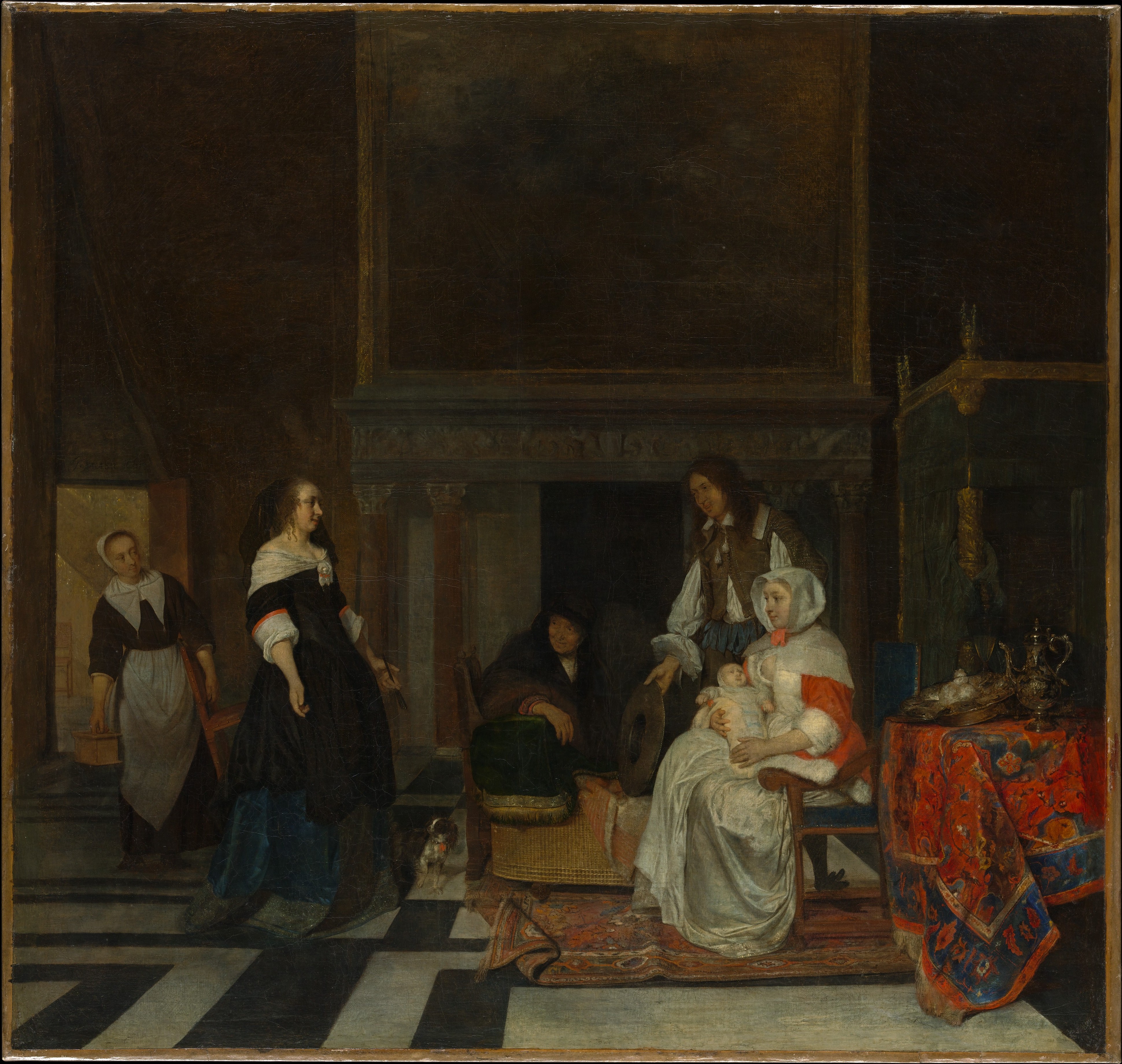
Painting - Gabriel Metsu, Visit to the Nursery, 1660, courtesy of the Metropolitan Museum of Art, public domain
Becoming a mother was truly important to the long term survival of the settlement. Women often married very young and had as many children as possible. A large family was seen as a sign of success and a blessing from God. Motherhood gave a woman increased social status, and confidence that she would be cared for in her old age.
There were traditions and furniture that related to becoming a mother including the cradle , the children's chair, and the low whicker seat or “bakermat” for nursing.
The enslaved Africans had a very different experience of fatherhood or motherhood. Their children were automatically the property of their owners. Enslaved children could be sold to other families, 'loaned out' for a fee to the owner, and their enslaved parents had no recourse. See an example here: https://encyclopedia.nahc-mapping.org/document/indenture-service-maria-young-negro-girl-nicolaes-coorn
Former slaves who had been given conditional freedom knew that their children were slaves, as the conditional freedom did not extend to family members. Some of them applied for manumission of their children. https://encyclopedia.nahc-mapping.org/document/petition-domingo-angola-…
The Indigenous people had their own traditions and ceremonies relating to motherhood and fatherhood. Because many of the Algonkian tribes were matrilineal, becoming a mother was particularly important.
Although there are very limited 17th Century descriptions of these customs, the missionary Domine Johannes Megapolensis, who learned the languages of the Mohawk people, and provided some written descriptions of his encounters with them, does discuss motherhood.
https://www.loc.gov/item/11021758/ "The women, when they have been delivered, go about immediately afterwards, and be it ever so cold, they wash themselves and the young child in the river or the snow. They will not lie down (for they say that if they did they would soon die),but keep going about. They are obliged to cut wood, to travel three or four leagues with the child; in short, they walk, they stand, they work, as if they had not lain in, and we cannot see that they suffer any injury by it; and we sometimes try to persuade our wives to lie-in so, and that the way of lying-in in Holland is a mere fiddle-faddle. The men have great authority over their concubines, so that if they do anything which does not please and raises their passion, they take an axe and knock them in the head, and there is an end of it. The women are obliged to prepare the land, to mow, to plant, and do everything; the men do nothing, but hunt, fish, and make war upon their enemies."
It is not clear if these customs were simply Mohawk, or applied to other north eastern tribes as well.

